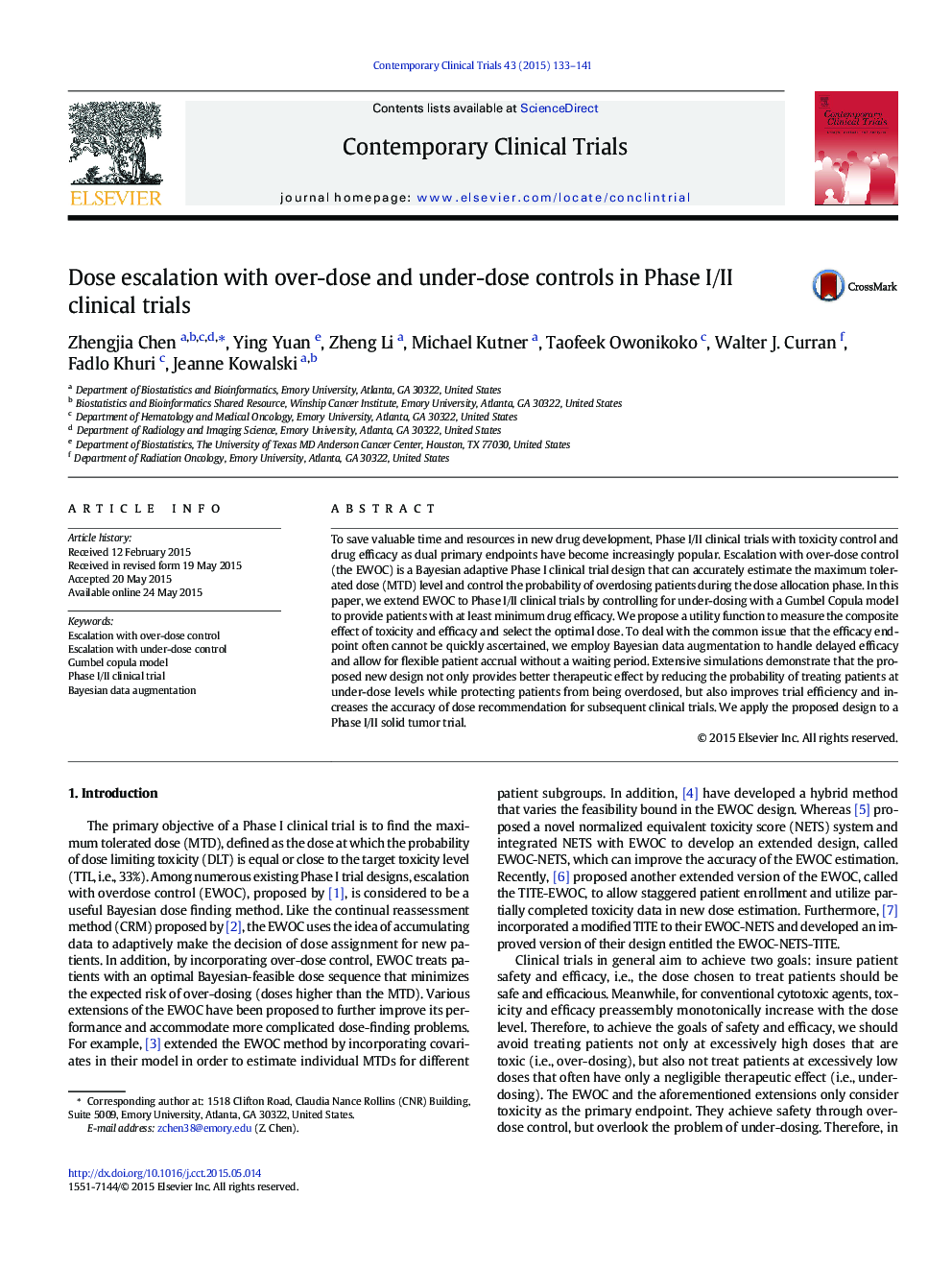| Article ID | Journal | Published Year | Pages | File Type |
|---|---|---|---|---|
| 6150634 | Contemporary Clinical Trials | 2015 | 9 Pages |
Abstract
To save valuable time and resources in new drug development, Phase I/II clinical trials with toxicity control and drug efficacy as dual primary endpoints have become increasingly popular. Escalation with over-dose control (the EWOC) is a Bayesian adaptive Phase I clinical trial design that can accurately estimate the maximum tolerated dose (MTD) level and control the probability of overdosing patients during the dose allocation phase. In this paper, we extend EWOC to Phase I/II clinical trials by controlling for under-dosing with a Gumbel Copula model to provide patients with at least minimum drug efficacy. We propose a utility function to measure the composite effect of toxicity and efficacy and select the optimal dose. To deal with the common issue that the efficacy endpoint often cannot be quickly ascertained, we employ Bayesian data augmentation to handle delayed efficacy and allow for flexible patient accrual without a waiting period. Extensive simulations demonstrate that the proposed new design not only provides better therapeutic effect by reducing the probability of treating patients at under-dose levels while protecting patients from being overdosed, but also improves trial efficiency and increases the accuracy of dose recommendation for subsequent clinical trials. We apply the proposed design to a Phase I/II solid tumor trial.
Keywords
Related Topics
Health Sciences
Medicine and Dentistry
Medicine and Dentistry (General)
Authors
Zhengjia Chen, Ying Yuan, Zheng Li, Michael Kutner, Taofeek Owonikoko, Walter J. Curran, Fadlo Khuri, Jeanne Kowalski,
